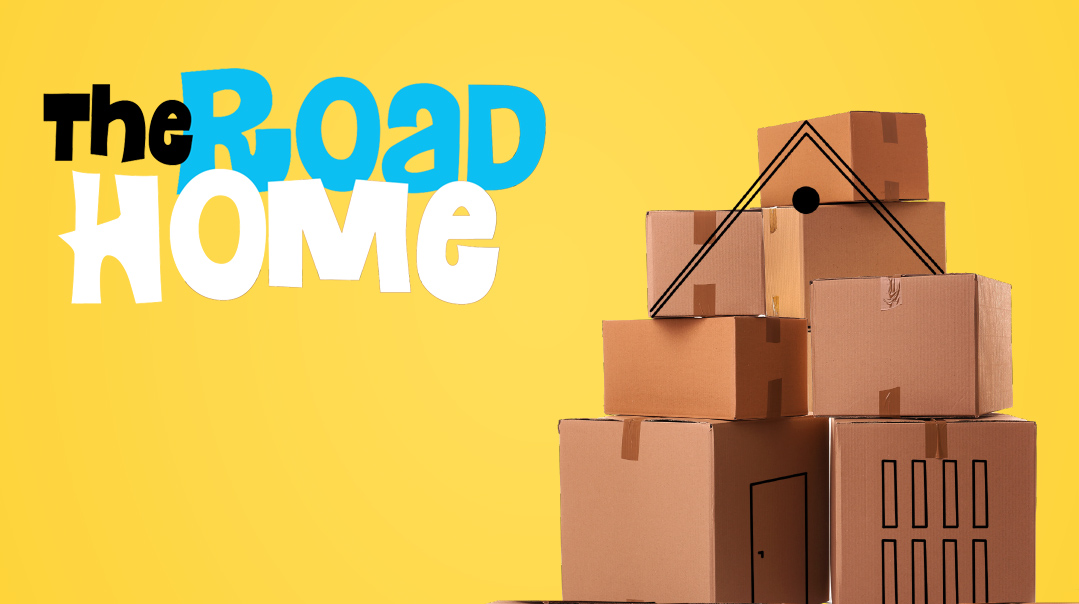The Road Home: Chapter 6

“You know, Jews aren’t bad,” she drawls. “They’re just misguided. All you have to do is—”

Aliza has not stopped talking. I am sitting and staring at her, trying to keep my balance on this trampoline. Trying to keep my balance on this roller coaster called life. And she’s pressuring me with this panic-attack freak-out fest? For the first time since I’ve met Aliza and become her friend, I start to feel little snakes of doubt sliding in my stomach, slithering through my heart.
Who is this about anyway? Me or her? Does she even care about me — or only about herself?
She is still jumping around, shouting, tears rolling down her cheeks, and I’m getting bounced, like a little buoy on this sea of black-and-blue giant trampoline. With effort, I crawl to the edge and hop to the ground, my feet craving solidity. The brick floor feels good beneath me.
“We’ll write to each other every day. We’ll visit all the time. I’ll fly there. You’ll fly here. We’ll still be best friends …”
As she rants and raves, I am struck by another thought. This move isn’t only my nisayon. It’s also hers. And also my family’s — each person with their own individual tests, their own permutations of it. Everyone is effected in their own way, and they see and feel different parts. I feel very, very mature and very, very old. Is that what moving so much does to a person?
When she has finally calmed down, I tell Aliza about my daydreams of reinventing myself. I wiggle my blue toenails inside my socks. “When I move, I can be whoever I want. Sure, I’ll still be the new girl, but I don’t have to be uncool, I don’t have to be defined by having frizzy hair or the wrong shoes. I can present myself however I want,” I share.
She looks doubtful. And, in truth, so am I. But it feels good to say these things. And to feel like I have some control over this situation.
****
Katybeth is lurking on the street corner. I ignore her and walk home, trying not to quicken my pace too obviously.
“Mali,” she calls out.
I turn, ever so reluctantly.
“Have you thought about what I said?”
“What?” I ask, and then regret it instantly. Was there a way I could have avoided this?
“You know, Jews aren’t bad,” she drawls. “They’re just misguided. All you have to do is—”
“Katybeth, I’ve got to go,” I say. “My mother’s expecting me home already!” I hurry away, not looking back.
(Excerpted from Mishpacha Jr., Issue 778)
Oops! We could not locate your form.




